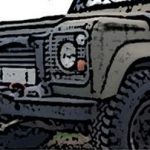News from mycarcheck.com
As we enter the peak period for secondhand car sales (following an influx of part exchanges against new 18 plate models), a survey of 100 consumers by vehicle history checker mycarcheck.com found that 89% were unaware of the recent write-off category changes.
In October 2017, the old A, B, C and D categories were replaced with new codes, which focus on safety rather than the cost of repair: A (scrap), B (break), S (structurally damaged repairable) and N (non-structurally damaged repairable).
Mark Bailey, Head of CDL Vehicle Information Systems, which owns My Car Check, said: “We are checking new category write-offs almost daily now, so the fact that 9 out of 10 people are unaware of them is a worry, especially when you consider that 4 of those who did know were motor traders. The survey was conducted by our Glasgow call centre in early February and all of those asked were checking used vehicles worth over £1,000. It shows that more must be done to educate buyers about write-offs, so they can either decide they want nothing to do with them, or they go into it with their eyes open, fully aware of the risks. Safety is paramount and written-off vehicles have to be properly repaired in order to perform as they should in the event of a second crash. There might be things the seller doesn’t know, or things they’d rather not tell you, so do your own history check to find out exactly what you’re getting into.”
Background info
Safety: A write-off is an accident damaged vehicle which an insurer decides is either beyond repair or too expensive to fix. Category A (e.g. burnt-out by fire) and B (e.g. major rear-end shunt) write-offs should never return to the road. Category S (e.g. collapsed crumple zone) write-offs will be unsafe until they have been professionally repaired. Category N (e.g. cosmetic or electrical issue) write-offs are often simply uneconomical to repair.
Value: Leaving the safety aspect aside, there’s the impact on desirability and value to consider with S and N (and the old C and D) grade write-offs. A category N write-off which has had cosmetic damage repaired will generally be worth about 25% less than a similar vehicle with clear history. As to the impact on desirability, in a survey a couple of years ago, 79% of mycarcheck customers said they wouldn’t buy a write-off.
Insurance: Some insurers will check the history of vehicles and can refuse to cover them or charge higher premiums. In the event of a claim, if it is discovered the vehicle has been previously written-off, they might offer a smaller amount to reflect the market value.
With information from the police, DVLA, insurers and finance houses, mycarcheck.com holds comprehensive data on every vehicle on UK roads – things that buyers should be aware of before making an offer.
CDL performs over a million look-ups a day for companies including AutoExpress, CompareTheMarket, Go-Compare, Moneysupermarket, Swiftcover and Tesco.










